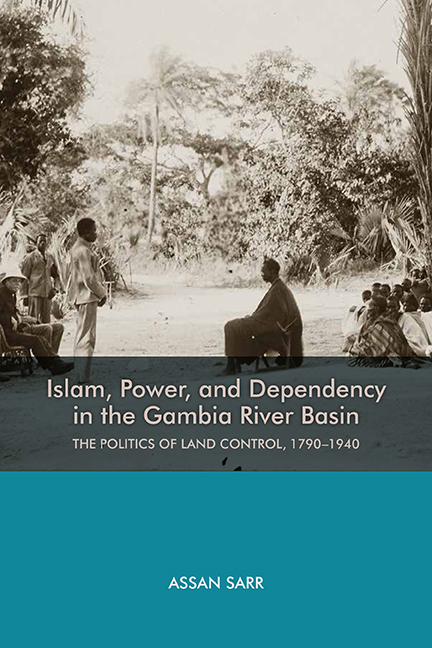Conclusion
Published online by Cambridge University Press: 26 April 2018
Summary
This book is aimed at reevaluating the political and social history of the Gambia region by focusing on land's role in that history. Land control cannot be divorced from the Senegambia region's larger history, because land was a vital political and social resource. Across the lower Gambia basin, there was an important distinction between “landowners” and people considered to be “stranger” populations. To this day, many families claim ties to certain places and share similar customs relating to inheritance, land tenure, and marriage and divorce.
The analysis presented here both confirms and challenges some common assumptions of African attitudes toward land and people. It details important political, spiritual, and environmental shifts in a part of Africa that underwent significant changes from the nineteenth century through the first half of the twentieth century. By using the prism of land, the book sought to explain the dynamics of power and domination as practiced in Senegambian society, which for over a century shaped the relationship between commoners and elites. The book attempts to reconstruct the life of the Mandinka aristocracy and their interactions with their subjects—the latter being mostly farmers, not traders. As a predominantly agrarian society, lower Gambian elites long recognized that controlling land would enable them to solidify their rule and increase their wealth and status just as controlling commerce would. They used their political power to distribute land to farming communities under their authority or control.
The book attempts to bring together central debates in “slave studies” and African colonial historiography: chieftaincy, land tenure, and invented traditions. It does this by exploring the ways in which control of land by a group of people shaped relationships of social dependency over time. It draws heavily from scholarship on the social and political history of precolonial Africa and it highlights land's value for production and sustaining power relationships.
The book discusses how land's value has changed over time, starting with early settlement by Mandinka farmers, who settled along the river and surrounding rainforest in a spiritual and material grid of meaning and ownership.
Information
- Type
- Chapter
- Information
- Islam, Power, and Dependency in the Gambia River BasinThe Politics of Land Control, 1790–1940, pp. 182 - 186Publisher: Boydell & BrewerPrint publication year: 2016
